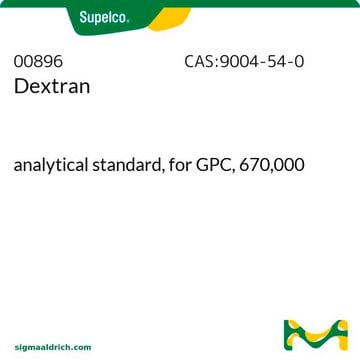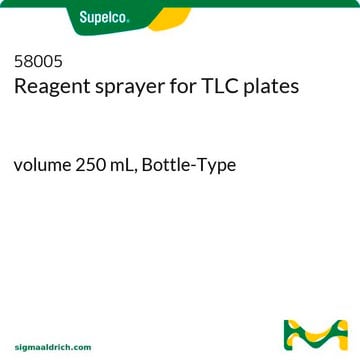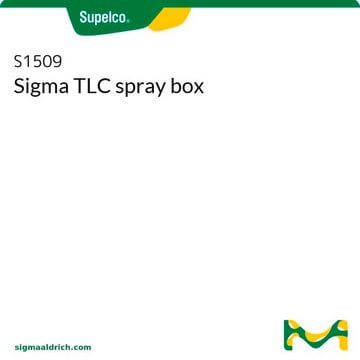02553
Phosphomolybdic acid solution
ready-to-use spray and plunge reagent, for chromatography
Synonym(s):
Molybdophosphoric acid
About This Item
Recommended Products
grade
for chromatography
Quality Level
form
liquid
reaction suitability
reagent type: oxidant
application(s)
diagnostic assay manufacturing
hematology
histology
storage temp.
room temp
SMILES string
O=[Mo](=O)=O.O=[Mo](=O)=O.O=[Mo](=O)=O.O=[Mo](=O)=O.O=[Mo](=O)=O.O=[Mo](=O)=O.O=[Mo](=O)=O.O=[Mo](=O)=O.O=[Mo](=O)=O.O=[Mo](=O)=O.O=[Mo](=O)=O.O=[Mo](=O)=O.OP(O)(O)=O
InChI
1S/12Mo.H3O4P.36O/c;;;;;;;;;;;;1-5(2,3)4;;;;;;;;;;;;;;;;;;;;;;;;;;;;;;;;;;;;/h;;;;;;;;;;;;(H3,1,2,3,4);;;;;;;;;;;;;;;;;;;;;;;;;;;;;;;;;;;;
InChI key
DHRLEVQXOMLTIM-UHFFFAOYSA-N
Looking for similar products? Visit Product Comparison Guide
General description
Application
Signal Word
Danger
Hazard Statements
Precautionary Statements
Hazard Classifications
Eye Dam. 1 - Flam. Liq. 2 - Ox. Liq. 3 - Skin Corr. 1B - STOT SE 3
Target Organs
Central nervous system
Storage Class Code
5.1B - Oxidizing hazardous materials
WGK
WGK 3
Flash Point(F)
53.6 °F - closed cup
Flash Point(C)
12.0 °C - closed cup
Personal Protective Equipment
Choose from one of the most recent versions:
Already Own This Product?
Find documentation for the products that you have recently purchased in the Document Library.
Customers Also Viewed
Our team of scientists has experience in all areas of research including Life Science, Material Science, Chemical Synthesis, Chromatography, Analytical and many others.
Contact Technical Service













